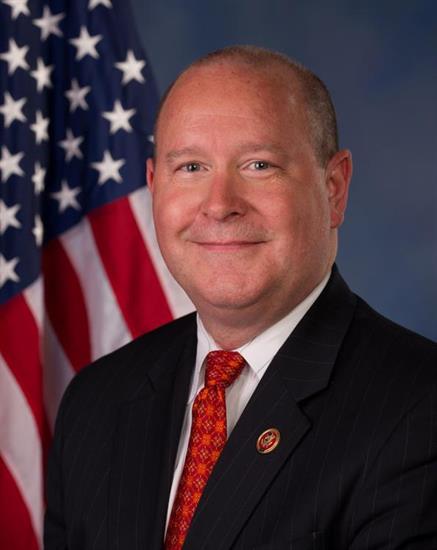In the News
Lawmakers grill FERC on response to resilience issues, out-of-market state actions
Washington,
February 17, 2019
Addressing state-subsidized generation's impact on the wholesale markets is "one of the trickiest areas" the commission is dealing with, FERC Chairman Kevin McIntyre told the House of Representatives' Energy and Commerce energy subcommittee during a hearing that rallied all five commissioners. He asserted that states have a valid role in creating policy to reflect the resource mix they prefer within their borders, but FERC also has an "obligation to ensure that the electricity generated by those resources that makes its way onto our grid is sold at rates that are just and reasonable." Other commissioners agreed that the commission is faced with a balancing act in this respect, but differed on how much leeway the states should be given. VIEWS VARY ON ACCOMMODATING STATE POLICIES Commissioner Richard Glick stressed that Congress, not FERC, gave the states authority over resource decision making, so the commission should have its eye on accommodating state policies, not overriding them. Commissioner Robert Powelson, a former Pennsylvania state utility regulator, countered that he had an epiphany that while it is within the states' rights to pick winners and losers for their generation mix and create policies like renewable portfolio standards, those resource decisions have consequences for capacity markets. He advocated for "giving states flexibility within reason of the Federal Power Act." McIntyre added to the debate that he believed an all-of-the-above energy strategy was the appropriate approach to satisfying the country's electricity needs. But if the country's commitment to that approach is genuine, "can we be content to see a category of resources go away and exit the scene?" he asked. "It's a very tricky public policy question that we're grappling with as we proceed with our grid resilience work." McIntyre was careful not to prejudge the outcome of an ongoing review of grid resilience (AD18-7) launched in January after the commission rejected a contentious proposal from the Department of Energy that sought market rule changes to stave off further retirements of baseload generation with on-site fuel supplies. With that notice of proposed rulemaking terminated, Energy Secretary Rick Perry testified before the energy panel last week about his concern that the US was headed to the point of no return, in which continued coal and nuclear plant retirements would leave the country unable to meet energy demands if action is not soon taken. The top Democrat on the panel, Representative Bobby Rush of Illinois, asked FERC Tuesday if it agreed with that assessment, and whether the commission had the means and authority to act on this issue if or when it becomes a problem. McIntyre said whether there were specific generation attributes or resources whose permanent exit from the power mix would harm American interests was a question "very much within the scope of the matters that we will be looking at as we make our decisions going forward." MCINTYRE KEEN ON BUILDING RECORD ON RESILIENCE Asked by other lawmakers for his view on the current state of grid resilience and the immediacy of a crisis, McIntyre reiterated the need to let the comment period on the resilience proceeding play out before jumping to conclusions. If the record reveals that there are resilience attributes present in the market that are not being adequately compensated, FERC will do something about it, he said. He added that FERC would also step in if the record showed that coal generators' contribution to grid resilience warranted higher compensation than what plants are currently receiving. On the issue of urgency, Commissioner Cheryl LaFleur chimed in to note that "all of the market operators have in place reliability-must-run tariffs so if a resource wants to retire, a test is done to make sure its retirement will not put customer reliability at risk." She said such tariffs were a good starting place for ensuring resilience, and the commission would evaluate whether changes to those tariffs were needed. Commissioner Neil Chatterjee, who was at the helm of the agency on a temporary basis when the DOE NOPR was presented, contended that while the record did not support compensating power plants based on 90 days of on-site fuel supplies, Perry was not wrong to pitch the question of resilience. "I think, over the course of time, Secretary Perry will be proven right," Chatterjee said. "We are going to ultimately have resilience challenges in this country, and we need to be prepared for them. I think this docket will allow for that." During his brief tenure as chairman, Chatterjee floated an interim plan to curtail coal and nuclear plant retirements, but was unable to garner the votes needed from other commissioners to move that forward. Chatterjee's proposal entailed issuing a show-cause order under FPA Section 206 directing each grid operator to either make tariff changes to provide interim support to certain generating resources or explain why they should not be required to do so. The plan would have given the grid operators latitude to define the resources targeted and tasked them with trying to minimize wholesale market impacts. "We may in the coming days, weeks, months be confronted with situations where the existing [RMR] tariffs do not allow for some of the accommodations that may be necessary," Chatterjee told lawmakers, suggesting that his show-cause order idea "may have been the right thing to do." Republican Representatives David McKinley of West Virginia and Larry Bucshon of Indiana both pushed for swifter action on the commission's part to address at-risk coal and nuclear units. But fellow Republican Joe Barton of Texas warned against meddling with the markets and instead encouraged putting more attention on relieving some of the regulatory burden on coal and nuclear units. Jasmin MelvinS&P Global |


